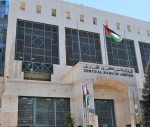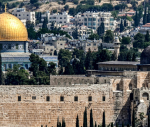You are here
Israel out of time
Jul 22,2014 - Last updated at Jul 22,2014
As the assault on Gaza enters its third week, the Israeli army is no closer to achieving its military objectives than it was on the first day. Palestinian resistance continues to fire rockets on Israeli cities and settlements while inflicting heavy casualties on the invading forces. Time is running out for Israeli Prime Minister Benjamin Netanyahu and his right-wing government. The death toll among Palestinian civilians from Operation “Protective Edge” has triggered angry reactions around the world. And if Israel’s deadly foray enjoyed the support of the US and others in the first two weeks, the political cover is about to be withdrawn. Sunday’s mass murder of more than 70 Palestinians, mostly women and children, in the Shejaiya neighbourhood, east of Gaza City, forced world media to cover the massacre extensively. Israel has lost the PR battle as horrific pictures of the dead and injured went viral on social media.
As the indiscriminate bombardment of Gaza — home to 1.8 million Palestinians — continued, political efforts to secure a ceasefire picked up pace. US Secretary of State John Kerry travelled to the region with the aim of reviving an Egyptian initiative to end hostilities. But Hamas, Islamic Jihad and other resistance groups insisted that unless their conditions are met, there will be no ceasefire. Their conditions are reasonable and should have been addressed many years ago. They include the lifting of the economic blockade — now entering its seventh year — the opening of border crossings, expansion of maritime area for Gaza fishermen and the release of Palestinian prisoners that Israel had arrested in the past few weeks in the West Bank. Israel and the Palestinian resistance had agreed to a truce in November 2012 which should have paved the way for ending the blockade. But once again Israel had reneged on its commitments.
The current showdown represents an existential battle for Hamas, and Gazans, for a number of reasons. The Islamic resistance movement had suffered politically since the toppling of Islamist President Mohamed Morsi in Egypt last year. The new regime closed the Rafah border point thus tightening the Gaza siege. Israel threatened Gaza banks with sanctions if they allowed the transfer of remittances. Thus government employees have not received salaries for the last six months. Economic strangulation of Gaza was meant to undermine Hamas, an off-shoot of the Muslim Brotherhood. Regardless of who started this latest war, Hamas knew that it is fighting for its survival.
This probably explains the apathetic attitude of some key Arab states towards the Israeli aggression on Gaza. The interests of these states coincided with those of Israel. Both sides wanted to see Hamas mortally wounded. But the price of such position is hefty. Tens of thousands of Palestinians in Gaza have been displaced and many more are threatened by an unprecedented humanitarian crisis. There are thousands of injured who require treatment outside the strip. Gaza hospitals have issued emergency appeals for medications and doctors. Almost 90 per cent of Gaza residents have no access to clean drinking water. And UNRWA has said it needs $60 million in emergency aid to keep its operations alive in Gaza.
Arab countries, which have failed to come to the aid of Gaza, must now adopt a new policy. They cannot allow their political view of Hamas to overshadow their responsibility towards the hapless people of Gaza. Unless they intervene a humanitarian catastrophe will be hard to prevent.
On the other hand, it is clear that the Israeli political establishment’s plans for Gaza suffered from major miscalculations. Hamas and the Palestinian resistance have taken the initiative. It is the Israeli government that is under pressure. With rising civilian casualties in Gaza the window for the military to continue with its mission is closing fast. In spite of the heavy casualties among Palestinians Israel could end up as a loser in this confrontation. With over 65,000 soldiers on the ground and hundreds of tanks and armoured vehicles, supported by aerial and naval firepower, this war should have been over many days ago. Instead, the resistance has endured and Gaza residents continue to support it.
Those who also stand to lose include Palestinian President Mahmoud Abbas, who has invited Palestinian anger for failing to take a strong stand against the Israeli aggression. He has ignored pleas to suspend security coordination with Israel and sign additional international treaties, including joining the International Criminal Court. He and those who believed Israel would destroy or cripple Hamas on their behalf will be greatly disappointed. He now risks facing a third intifada in the West Bank.
More importantly, perhaps, is the political fate of Netanyahu, who had failed to learn from the lessons of predecessor Ehud Olmert, and his government following the botched assault on Gaza. The Israeli premier has only few days to accomplish something before he is forced to negotiate a deal with the Palestinian resistance. This latest war could seal his political future.
But the war will not stop unless the siege on Gaza comes to an end. This is the only thing that could justify the heavy sacrifices that Gazans have paid in the last few weeks. Hamas knows this and seems to be ready for a prolonged confrontation.
The writer is a journalist and political commentator based in Amman.












